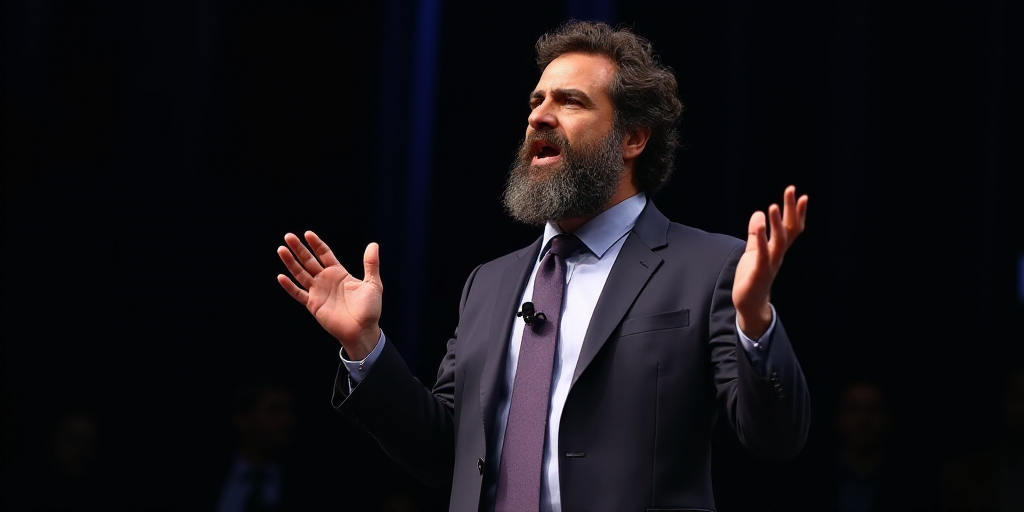Introduction
In a rapidly changing world, education plays a crucial role in generating solutions to challenges. Recognizing this reality, the Instituto para el Futuro de la Educación (IFE) at Tecnológico de Monterrey has established itself as a hub for innovation, not only conducting cutting-edge research but also ensuring that this knowledge translates into real and transformative impact.
About José Escamilla de los Santos
José Escamilla de los Santos, the Associate Director of IFE, shared with El Economista that the institute distinguishes itself from other research centers through its strategic approach and action model. “We are not just a research institute,” Escamilla explains. “We seek interdisciplinary research to ensure that the solutions we find have a more holistic and comprehensive view.” In line with this, they recently released the IFE Impact Report, a document that outlines the path to a more dynamic, inclusive, and future-ready educational ecosystem.
IFE’s Focus on Lifelong Learning
Escamilla emphasizes that IFE’s mission centers on adult education, higher education, and crucially, lifelong learning. “People need to keep learning throughout their lives,” he says, underpinning the institute’s commitment to continuous education.
Bridging Theory and Practice
The institute’s true strength lies in its ability to translate theory into practice. “IFE has dedicated areas to ensure that our research directly impacts society,” Escamilla states. This is achieved through consulting projects, collaborations with governments, universities, and e-learning organizations, as well as active support for educational technology entrepreneurs.
Microcredentials: A Cornerstone of Lifelong Learning
The IFE Impact Report details all initiatives developed throughout the year. Last year, the institute collaborated with over 50 universities, organizations, and governments worldwide. Their efforts span from supporting the transformation of educational models and using advanced technologies to developing microcredentials and integrating artificial intelligence in education, as well as organizing continuous learning programs.
Understanding Microcredentials
“Microcredentials are a series of recognized competencies by society,” explains Escamilla. They can validate skills for a specific job, such as cloud programming or financial risk analysis, but also cover talents in diverse areas like playing a musical instrument or painting. “The key is that they represent relevant and evaluable competencies through a portfolio of evidence,” the specialist said.
Scaling Microcredentials
The challenge lies in how to achieve this on a large scale. IFE is working with universities to incorporate microcredentials into their continuous education programs and recognize partial studies with these intermediate certifications. “This would allow students to obtain market-valued accreditations before completing a full degree, such as a microcredential in digital marketing or historical text analysis within a communication program.”
Artificial Intelligence: A Tool, Not a Replacement, in Education
The IFE report dedicates a crucial chapter to artificial intelligence (AI), acknowledging its role as an enabler in education to improve quality, coverage, and efficiency. The institute views AI not as a replacement for teaching but as a tool to enhance it.
Nexus: IFE’s AI Efforts
IFE has created Nexus, a dedicated area to concentrate all AI efforts, from research and entrepreneurship to consulting and dissemination. Through Nexus, IFE has established a network of 50 universities actively collaborating in AI experimentation and development for educational use cases.
Ethical Implications of AI in Education
This network explores not only improving educational processes but also the ethical and privacy implications of AI. A significant milestone is offering an open version of TechGPT, the AI platform developed by Tecnológico de Monterrey. Known as TechGPT Open Edition, this tool (allowing private access to Chat GPT, a curated library of prompts by teachers, and an “Agent Studio” for creating chatbots) is already accessible to over 20 universities in the network, with 10 selected to run pilot experiments.
Connecting Through the IFE Impact Report
The IFE Impact Report is more than a data compilation; it’s a document containing project examples and the voices of key actors: students, teachers, universities, researchers. Escamilla emphasizes that the report contains “inspiring stories,” offering a motivating vision of the future of higher education and lifelong learning.
In addition to documenting achievements and innovations, the report invites readers to connect with IFE’s activities and, more broadly, the innovators’ community in Mexico and Latin America. “It’s a roadmap for transformation and an invitation to be part of it,” Escamilla concludes.
For more details on the report, visit: https://tec.mx/es/ife/impact-reports
Key Questions and Answers
- What are microcredentials? Microcredentials are recognized competencies by society, validating skills for specific jobs or diverse talents. They represent relevant and evaluable competencies through a portfolio of evidence.
- How does IFE ensure its research impacts society? IFE has dedicated areas to translate theory into practice through consulting projects, collaborations with governments, universities, and e-learning organizations, as well as supporting educational technology entrepreneurs.
- What role does AI play in education according to IFE? IFE views AI as an enabler in education, improving quality, coverage, and efficiency without replacing teaching. The institute’s Nexus area focuses on AI research, entrepreneurship, consulting, and dissemination.
- What is TechGPT Open Edition? TechGPT Open Edition is an open version of the AI platform developed by Tecnológico de Monterrey, allowing private access to Chat GPT, a curated library of prompts by teachers, and an “Agent Studio” for creating chatbots. It’s accessible to over 20 universities in IFE’s network, with 10 running pilot experiments.






